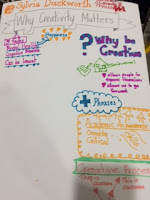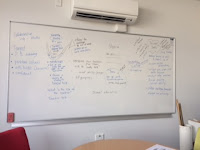STEM
I attended the STEM workshop at the Te Ara Tuhura Toolkits run by the Manaiakalani cluster. I had not done a lot in this area and so was interested in how STEM is done in a classroom setting. The teachers who took it dedicated a whole morning to this STEM activity. The environment in which they taught this was a bilingual one in which there were children from the age of 5 to 11 years.
The process in which they went through was provocation, planning, creating, sharing and reflecting. They came up with most provocations themselves or gained a few ideas from the internet. I found this interesting as I think for me this would be a challenge to come up with something each week. They said it becomes easier the more you do it and if you just think about the things that are happening then it will help to come up with something. I like the planning process as it was detailed and there was a criteria for them to gain more points. I think I would adjust this slightly as the year went on to challenge them more. I would also be clear about the roles in which they do to help ensure everyone participates.
During the creating process the teachers explained they do not spend a lot on the equipment given. This made me think that it is an accessible activity for all. The sharing part is important and very much fit it in with the Manaiakalani way of thinking with putting an importance on sharing. This was done orally, however this could be done in other ways as well. The reflection process that they have just put in place would be interesting with the young ones, but she said they sometimes just orally say it. The reflection side of things would just finish things off nicely for the whole process.
I can see how this approach can help with our work with the children on improving their collaborative skills. It covers many areas of the curriculum which is great. I would like to try this approach to learning at some stage and would enjoy the challenge of coming up with a good provocation.



